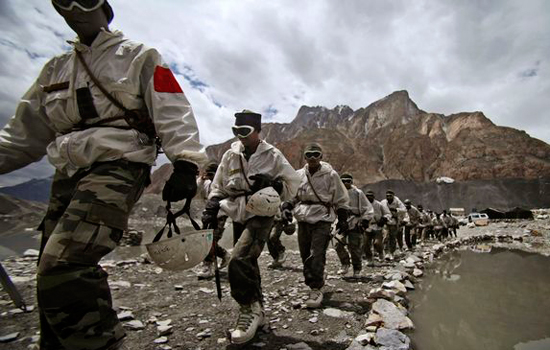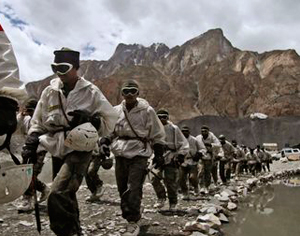
The Indian cabinet committee on security (CCS) gave its approval for raising a mountain strike corps along the China border. This would be India’s fourth strike corps, meant chiefly for offensive operations into enemy land, as well as India’s first dedicated corps for offensive mountain warfare. The corps will take around six years to be raised along the Line of Actual Control (LAC) and new formations would be raised from Jammu and Kashmir to Arunachal Pradesh.
Subscribe to learn about the planned formation and ORBAT of the new corps
The main mission of the 45,000-50,000-strong corps will be to beef up the military presence along the Line of Actual Control (LAC), thus deterring further military adventurism by China. While raising a fourth mountain strike corps was on the table for about 10 years, the recent incursion by Chinese troops into the Daulat Beg Oldi (DBO) sector in eastern Ladakh in April 2013 may have acted as ‘a trigger-pulse’ for CCS decision. In 1962 a border dispute along the Himalayan region has evolved into a war between China and India. During this month-long conflict, coinciding with the Cuban Missile Crisis, the Chinese launched simultaneous offensives over the 3,000 km Himalayan border. The Indian army, unprepared for mountain warfare, was defeated in this campaign.
The new corps will be equipped and trained to launch offensive action beyond the LAC, into the Tibet Autonomous Region, in case of a Chinese offensive. By authorizing the military to raise the new formation the government is committed on additional expenditure of Rs.64,000 crore (US$13.6 billion) – roughly half the defence budget for 2013-14 — over a seven-year period, official sources said. However, in its decision, the CCS was not clear when funding would be made available for implementing the decision. ‘It is a long-awaited, strategically apt decision which will go a long way in contributing to India’s combat potential in diverse operations of war to deter our potential adversaries in the mountainous region along our vast Himalayan borders,’ Lt. Gen. Kamal Davar (retd), the first head of the Defence Intelligence Agency chief told the Indo-Asian News Service (IANS).
“The Chinese and Indian governments have signed several agreements on safeguarding peace and tranquillity in the border areas and on taking trust-building measures in the field of military”, Chinese Foreign Ministry, said in written response to a query from Press Trust of India (PTI) on China’s reaction to the Indian move. The approval for the formation of the new corps comes as the two countries held advanced negotiations on the Border Defence Cooperation Agreement (BDCA) which figured prominently in Defence Minister A K Antony’s visit here earlier this month. It was also discussed during National Security Advisor Shivshankar Menon’s visit on June 28 when he held the 16th round of talks to resolve the border issue with his counterpart Yang Jiechi. Indian officials here earlier refuted perception that the BDCA which was proposed by China was aimed at containing the development of infrastructure on the Indian side of the border or freezing the troop levels.

















